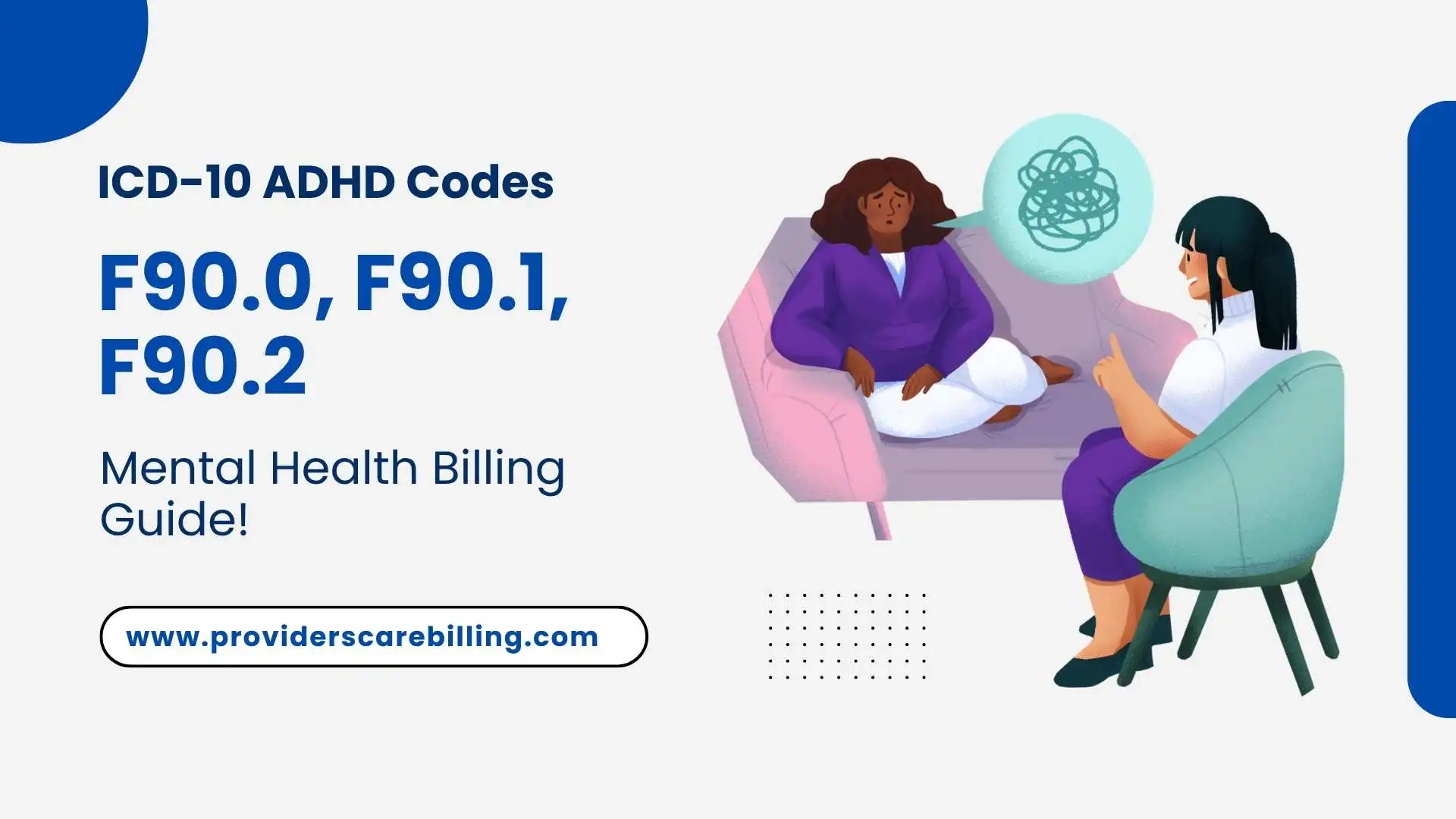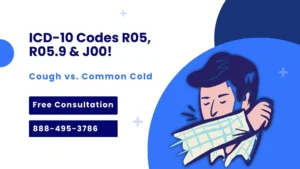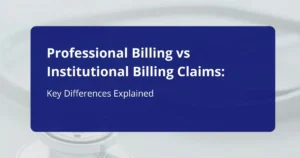Do you know the ADHD and various presentations ICD-10 codes?
ICD-10 F90.0, F90.1, and F90.2 are among the several codes. The different types of Attention-deficit Hyperactivity Disorder (ADHD) are categorized according to them. Knowing these codes plays an important role in the correct diagnosis and planning of care and treatment, as well as reimbursement of your practice with the right amount of money, and investing in the valuable care of a client with ADHD.
ADHD is a complicated neurodevelopmental illness. The condition is defined by chronic imbalances in terms of inattention, hyperactivity, and impulsivity.
What Is ICD-10 ADHD Coding?
The International Classification of Diseases (ICD-10) is a system of numerical diagnostic codes used to classify diseases such as ADHD. They’re used internationally for morbidity and mortality data, payment, and automated decision support in drug development. In malignancy of the fact that the general ICD-10 law F90 is generally applied to gain a broad bracket of Attention Deficit Hyperactivity Disorder ( ADHD), it’s important to realize that it’s divided into several subtypes. The use of more specific F90-codes related to the particular presentation of the individual having ADHD is highly recommended to carry out the diagnosis, plan treatment, and receive the requisite reimbursements.
F90.0 – ADHD, Predominantly Inattentive Type
The diagnosis code, F90.0, is associated with Attention-Deficit Hyperactivity Disorder, Predominantly Inattentive, which is also known as ADD that as per the Diagnostic and Statistical Manual of Mental Disorders. The primary symptom of such a subtype is the inability to concentrate on something, stay organized, follow instructions, or complete tasks, which is called inattention. Such patients normally do not show hyperactive symptoms or impulsivity.
Symptoms:
- Trouble focusing is often accompanied by hyperactive-impulsive symptoms in individuals with ADHD.
- Forgetfulness
- Daydreaming
- Inability to listen well
The patients of this subtype are not hyperactive and usually experience inattentiveness and poor concentration (ICD-10: R41.840).
When to Use F90.0?
- Six indications of six months of inattention are present in this case.
- There is functional impairment at the academic or social level.
- No impulsivity or hyperactivity nature is noted.
Billing & Documentation Tips for F90.0
- Compare the documentation with the DSM-5 points.
- Associate the symptoms with school/work performance to better understand the impact of hyperactivity-impulsivity.
- Apply supportive materials such as the Vanderbilt or Conners scales
CPT pairings:
- 90791 psych eval
- 90834 (Personal treatment) is often utilized in the context of a neurodevelopmental disorder.
- Developmental screening 96110
F90.1 – ADHD, Predominantly Hyperactive-Impulsive Type
The F90.1 code defines ADHD involving the dominance of hyperactivity and impulsivity symptoms with minimal inattentive symptoms. Patients of this subtype (children or adults) may be observed to be fidgeting, exhibiting hyperactive behavior, or sometimes have extreme talking behaviors, and all these may interfere with their work output. The behaviors are disruptive and produce deficits at home, school, and in society.
Common Behaviors:
- Fidgeting
- Talking excessively
- Interrupting others
- Acting impulsively
Usage of F90.1.
- Impulses are long-lasting and problematic
- Attention lapse is not at the clinical level
- The effects are seen at the school or home level
Billing and Coding Tips – F90.1.
- Specific: What were the observed hyperactive behaviors?
- One should not tend to use this code without any documentation
CPT examples:
- 90832(Therapy 30 min)
- 90846 (Patient-less family therapy)
- 90863 (Medication management)
F90.2 – ADHD with Conduct Disorder
F90.2 diagnosis code indicates those people whose diagnostic criteria fit both ADHD and Conduct Disorder (CD). This concomitant condition consists of traditional ADHD symptoms and long-term behavioral problems like aggressiveness and lying, property damage, or major offenses of the rules. A typical situation where F90.2 is applied is among the older children or the adolescents whose actions contribute to the suspension of schools, cases with legal issues, and family dysfunction. This is a severe diagnosis that is highly complex clinically and takes intense interventions, more sessions of therapy, and may involve drugs and family counseling.
Usage of F90.2.
- They both satisfy the requirements of ADHD and conduct disorder, DSM-5
- Behaviors have consequences in school, family, and social away as well
- There may be some legal problems or expulsions involved
Documentation Tips
- Specify angry or rebellious actions
- Distinguished from oppositional defiant disorder (ODD)
- Consider behavior rating scales as an aid to diagnosis
Billing Recommendations
- CPT 90837 (60 min of therapy) of intensive management
- Contemplate mild behavior intervention codes in the case of extreme behavior
- Introduce modifier 25 in cases when several services are provided during the same day to ensure accurate diagnosis.
Clinical Comparison of ADHD Subtypes
| ICD-10 Code | Type | Core Symptoms | Risk Profile |
| F90.0 | Inattentive | Forgetfulness, low focus, daydreaming | Low to Moderate |
| F90.1 | Hyperactive-Impulsive | Fidgeting, excessive talking, and impulsivity | Moderate |
| F90.2 | ADHD + Conduct Disorder | Aggression, lying, and rule-breaking | High |
Selecting the right subtype of ADHD can be used to guarantee a good fit of treatment, insurance coverage, and the cost of adhering to a payer.
An ADHD claim was being denied nearly 28% of the time at an Ohio pediatric mental health center. The reason for this denial was very simple, according to a quick audit. Providers were billing under “F90.0” (inattentive type) coding for both ADHD inattentive and combined type ADHD scenarios.
Like Providers Care Billing LLC, a professional medical billing services company, which helped in standardizing documentation and template design. Results came in just 60 days.
- Denied claims dropped to 4% resulting in:
- A 19% increase in reimbursements
- A 25% decrease in the time taken till the first claim submission
Takeaway: Expert assistance in revenue cycle management is the solution to correcting your coding and billing woes.
Why Accurate ADHD Coding Matters?
- Assists in making personalized care possible
- Pre-empts dissimilar risks to an audit by ambiguous coding
- Assists in the rationale of prolonged services/medication
- It increases insurance reimbursement with compliant claims
At Provider Care Billing LLC, our coding team is familiar with all the peculiarities of ADHD codes according to the ICD-10 classification- F90.0 to F90.9. We support mental health care specialists in the U.S. to bill and charge correctly.
If your practice also offers group counseling sessions, don’t miss our detailed breakdown of CPT 99411 and 99412 for preventive medicine group counseling.
ADHD Documentation Checklist
- This can be used in order to come up with clean claims and cut down denials:
- Early-onset (below 12 years of age)
- The presence of symptoms lasting 6 months or more
- Functional loss is well recorded (at home, school, and social)
- Type a subtype: inattentive, hyperactive, or combined
- Append tools of assessment (e.g, Conners, Vanderbilt)
- Stay in touch with school or family
CPT Codes Commonly Used with ADHD ICD-10 Codes
| CPT Code | Description |
| 90791 | Initial psych evaluation |
| 90834 | Individual therapy (38-52 mins) |
| 90837 | Individual therapy (60 mins) |
| 90846 | Family therapy without a patient |
| 96110 | Developmental screening |
| 96130 | Psychological testing |
| 90863 | Pharmacologic management |
To prevent denials, the ADHD diagnosis code (F90.0, F90.1, F90.2) should always be correlated to the corresponding CPT.
Ready to Optimize Your ADHD Billing?
Proper coding = quicker remunerations.
Our certified coders can assist you in decreasing denials and getting more reimbursement for ADHD services.
Call in and receive a free ADHD billing audit now!
📞 Call Now: 888-495-3786
📧 Email: Info@providerscarebilling.com
You are one code away from success.
Conclusion
Conclusively, the proper utilization of ICD-10 codes F90.0, F90.1, and F90.2 is of great significance in ADHD diagnosis, documentation, and claiming medical bills, as emphasized by healthcare providers. The differences in the code denote specifics of the behavior, starting with inattentiveness to hyperactivity and conduct-related issues. To carry out proper treatment planning, it is paramount to choose the right diagnosis code. This will guarantee reimbursement without any delay or error.
We are Providers Care Billing LLC, and we make mental health providers take control of the ADHD billing process and do it accurately and compliantly. With documentation and professional assistance, CPT combinations, coding assistance, and so on, the practice can reduce denials and give the care that your patients need to receive, maintaining your revenue at the same time.
Frequently Asked Questions (FAQS)
- What is the ICD-10 code for a combined type of ADHD?
The right code is F90.2- ADHD with conduct derailment.
- Is it possible to give F90.9 in the case of an unclear ADHD subtype?
Yes, F90.9 is unspecified ADHD; however, it is best to avoid using it unless there is a need.
- What is the code of ADD without hyperactivity?
F90.0 is to be used in the case of the inattentive type of ADHD previously called ADD.
- Can the codes be applied to adult ADHD as well?
Yes. Adult ADHD ICD-10 follows the same F90 codes when the criteria are met during diagnosis.




